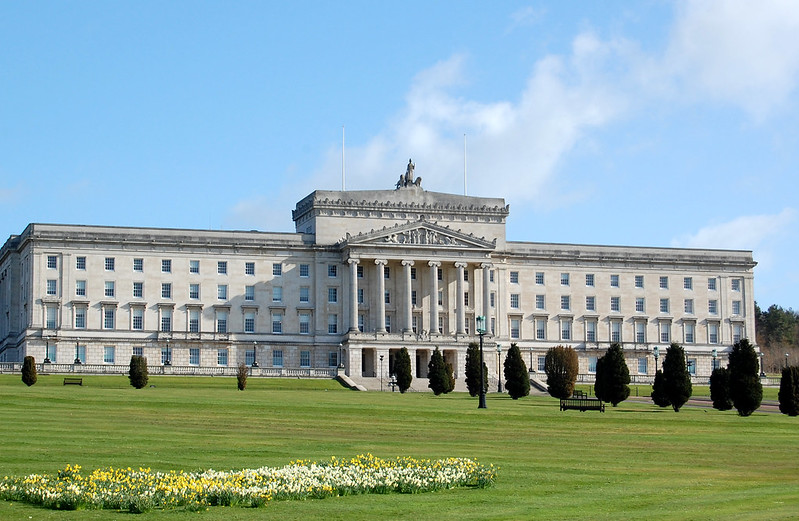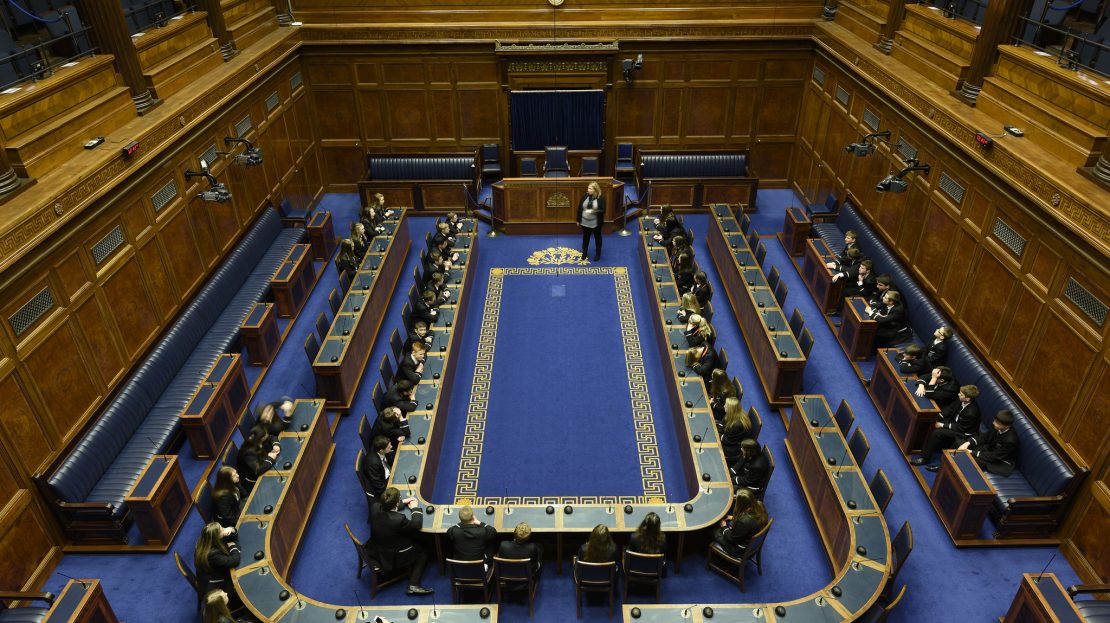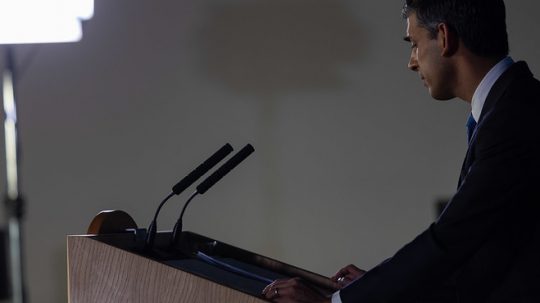For the last 25 years, following the Belfast (Good Friday) Agreement in 1998 – which helped bring conflict in Northern Ireland to an end – there has been a call for a dedicated Bill of Rights for Northern Ireland.
This would be separate to the Bill introduced into Parliament in Westminster last year by the UK government, dubbed by critics the Rights Removal Bill. The Northern Ireland Human Rights Consortium, which represents 160 civil society organisations, said Westminster’s Bill of Rights Bill threatened to “violate” the Good Friday Agreement.
The Belfast (Good Friday) Agreement of 1998 (GFA) signalled a settlement for Northern Ireland between most categories of unionists/loyalists and nationalists/republicans. The GFA has two aspects – it is a peace agreement between the unionists and republicans, but it is also a bilateral treaty between the UK and the Republic of Ireland.
The Law Society of Northern Ireland rejected the UK government’s proposed Bill of Rights, stating: “We share the view of former President of the Supreme Court, Baroness Hale, who in a recent lecture delivered in Belfast suggested that this Bill is a watering down of human rights protections in Northern Ireland and ‘the reverse’ of what was envisaged in the Belfast (Good Friday) Agreement.”
A significant component of the GFA was that the UK would pass legislation for a dedicated Bill of Rights for Northern Ireland, recognising the nation’s particular context.
Threats to the Human Rights Act and to UK membership of the ECHR pose risks to the Good Friday Agreement
The GFA enshrines human rights in Northern Ireland. It says that any primary legislation passed by the Northern Ireland Assembly is subject to the European Convention on Human Rights (ECHR), an international human rights treaty which the UK has been a signatory to since it came into effect in 1953.
Once the GFA came into force, after referendums held by the British and Irish governments, these rights were incorporated through the Human Rights Act (HRA) 1998. These ECHR rights underpin the GFA’s commitment to “the mutual respect, the civil rights and the religious liberties of everyone in the community”.
The European Court of Human Rights (ECtHR), based in Strasbourg, rules on possible violations of ECHR rights and can overrule laws passed by the Northern Ireland Assembly if they are incompatible with the convention. People in Northern Ireland also have the right to remedy from the ECtHR for a breach of the ECHR.
As in the rest of the UK, the Human Rights Act (HRA) incorporates the ECHR into domestic legislation in Northern Ireland. The UK government’s proposed Bill of Rights would repeal the HRA. In that Bill, the government sets out a ‘re-balancing’ of powers between the ECtHR and the UK’s domestic courts, such as the Supreme Court, effectively aiming to reduce the influence of the ECtHR over laws in the UK. The Bill affirms that judgments, decisions and interim measures of the ECtHR in line with the ECHR, such as the decision to block the first deportation flight to Rwanda, will no longer be binding on UK courts.
Will Northern Ireland get its own Bill of Rights?
Calls for a Bill of Rights by the proposed UK government and for a Bill of Rights in Northern Ireland are two different things. The former would replace the HRA altogether. The latter would, instead, add to the rights protections enjoyed by people living in Northern Ireland.
The Northern Ireland Human Rights Commission (NIHRC) published a report in 2008 recommending an extensive and comprehensive Bill of Rights for Northern Ireland. The report was produced following detailed and lengthy consultation throughout Northern Ireland that involved wide-ranging input from various groups and individuals within Northern Irish society.
Professor Colin Harvey, a professor of human rights law at Queen’s University Belfast, said: “The Northern Ireland Human Rights Commission submitted its advice on a Bill of Rights to the British government on 10 December 2008. There has been an uneasy stalemate since then, and at times it has simply disappeared from view. The commission concluded that an ambitious instrument was merited, one that built on the Human Rights Act 1998 and would embrace, for example, socioeconomic rights. The government, and some others, disagreed.”
Recommendations included that a Bill of Rights for Northern Ireland should include various rights that supplement the ECHR. The majority of these extra rights would be drawn from international human rights treaties to which the UK is already legally bound. These extra rights include socioeconomic rights, children’s rights and environmental rights, among others. The NIHRC also suggested that definitions needed to be widened, arguing that the definitions used in the HRA are too narrow.
Harvey continued: “Things looked hopeless until New Decade, New Approach opened a door. It led to the establishment of an Ad Hoc Committee. And the Committee produced its final report in 2022.”





